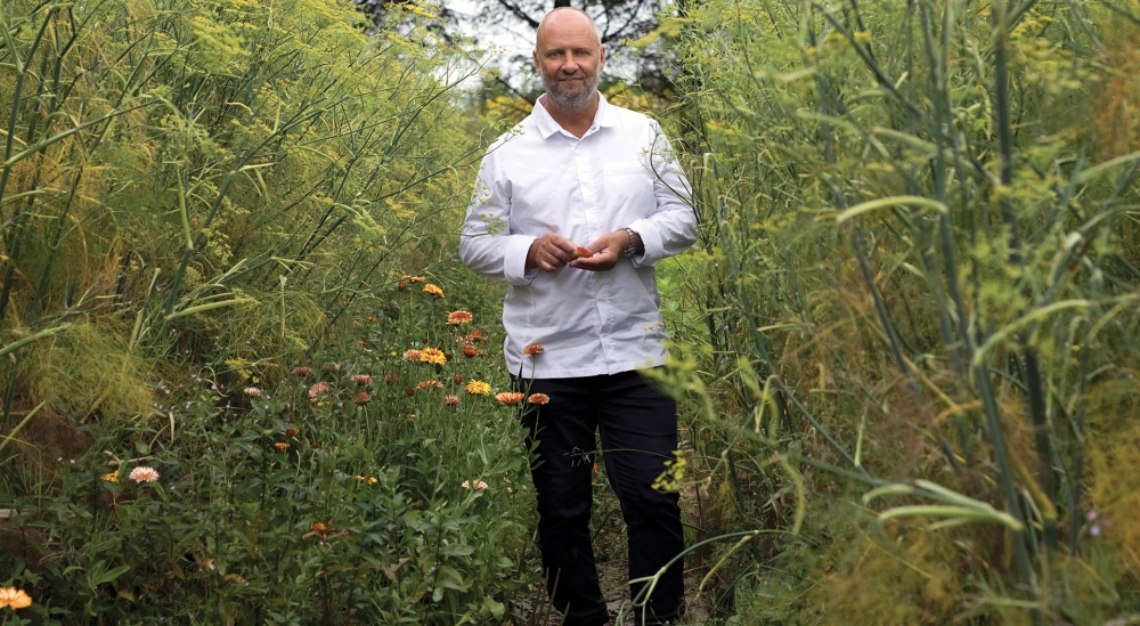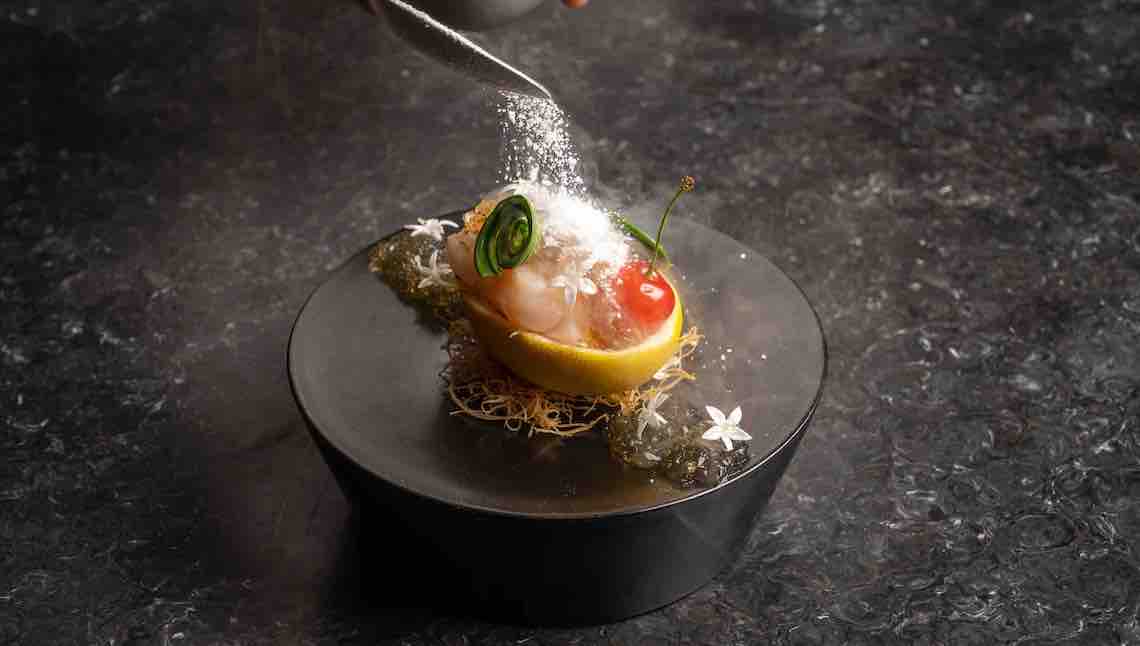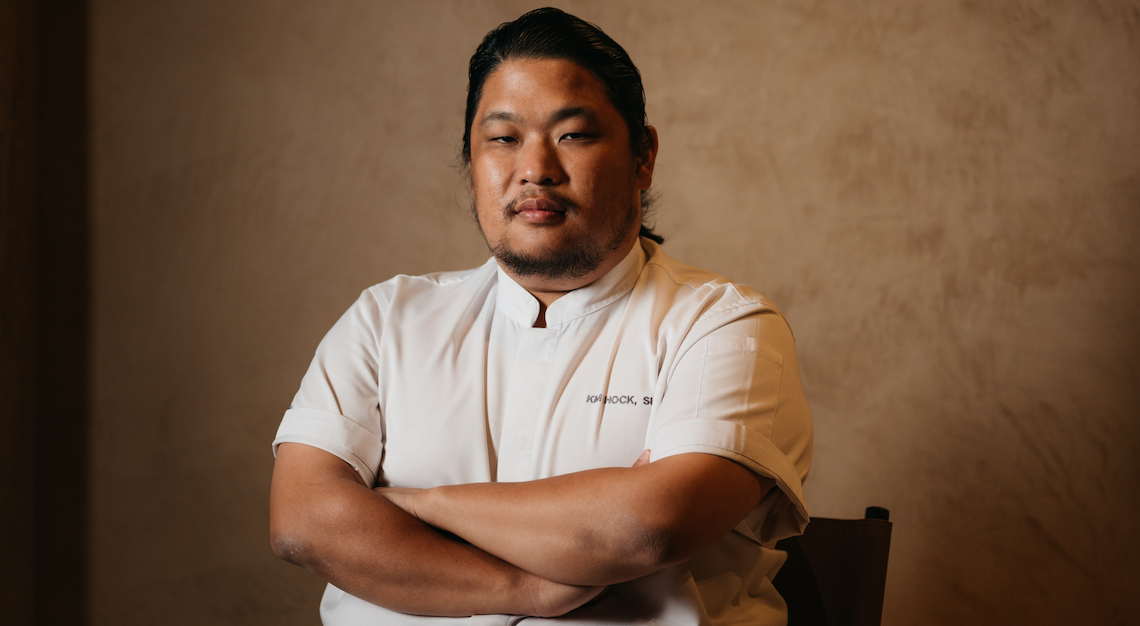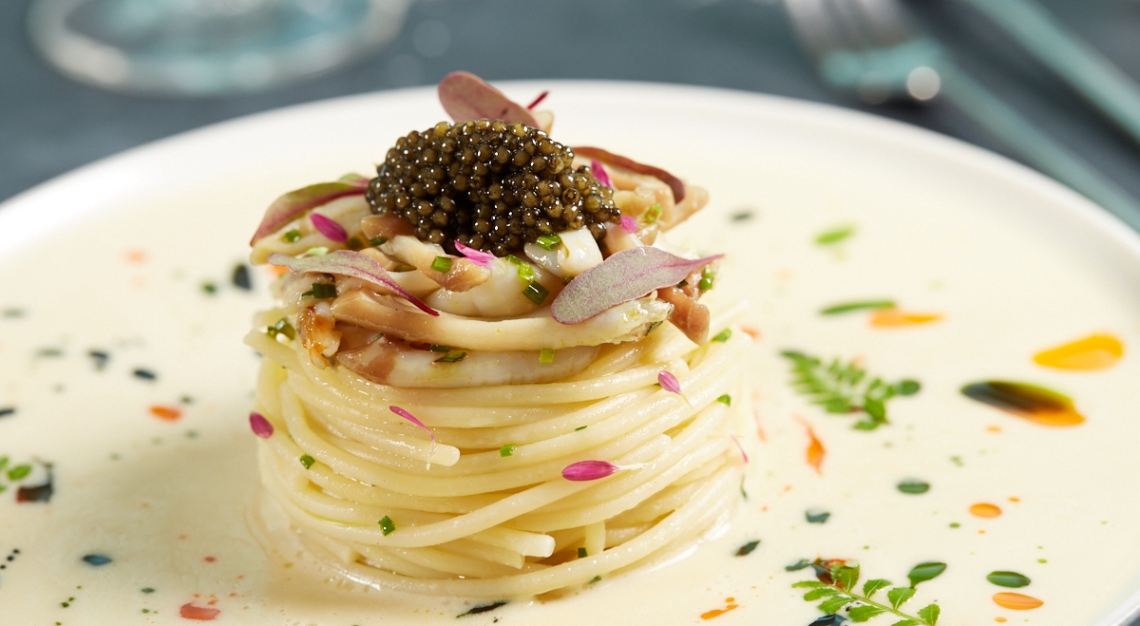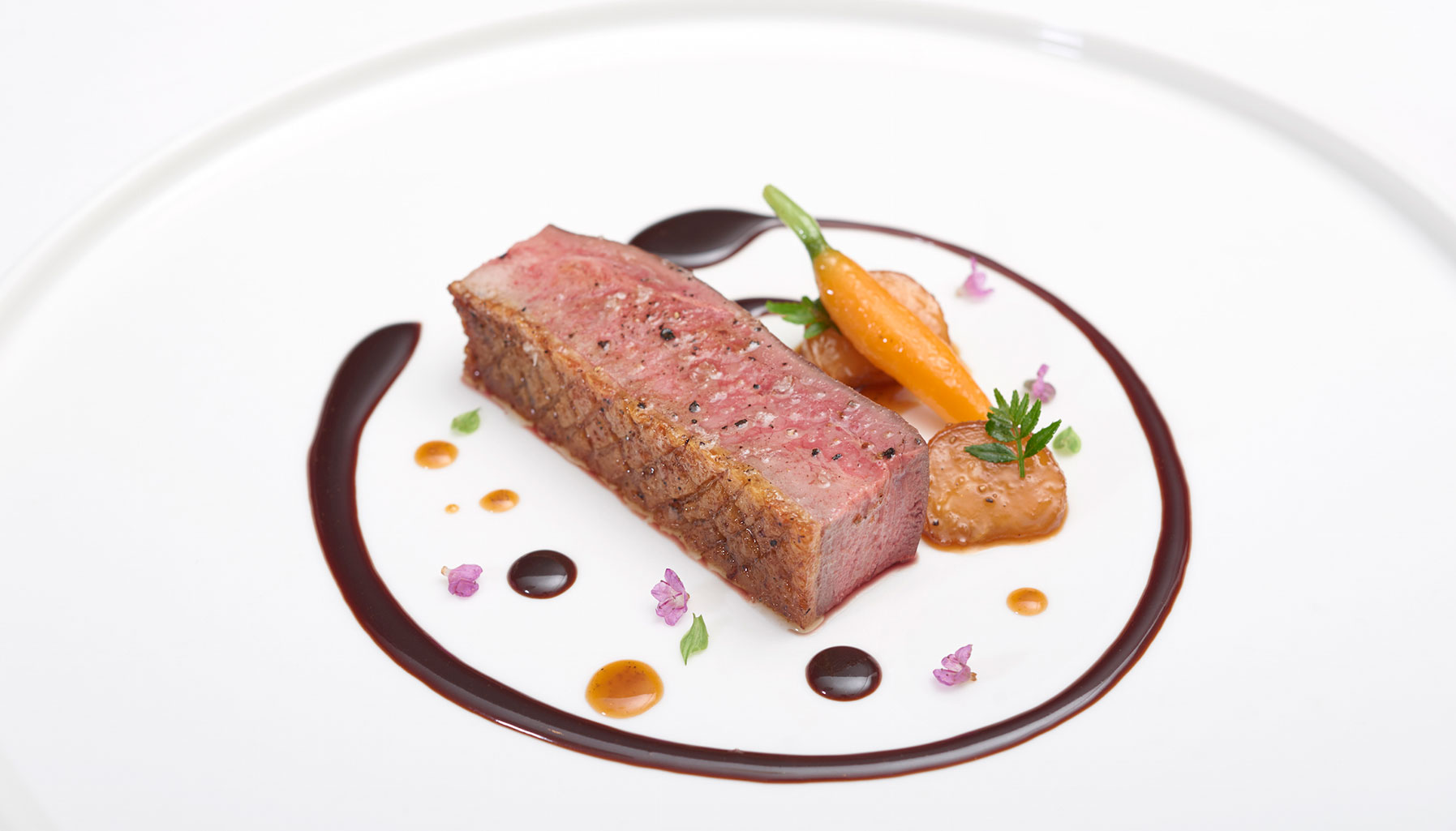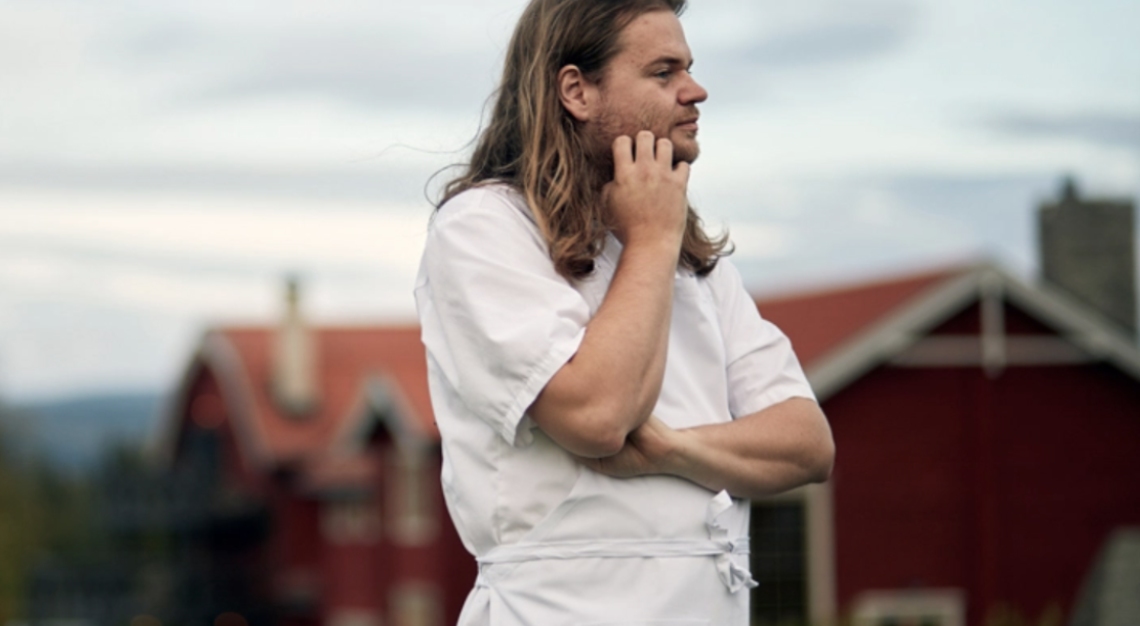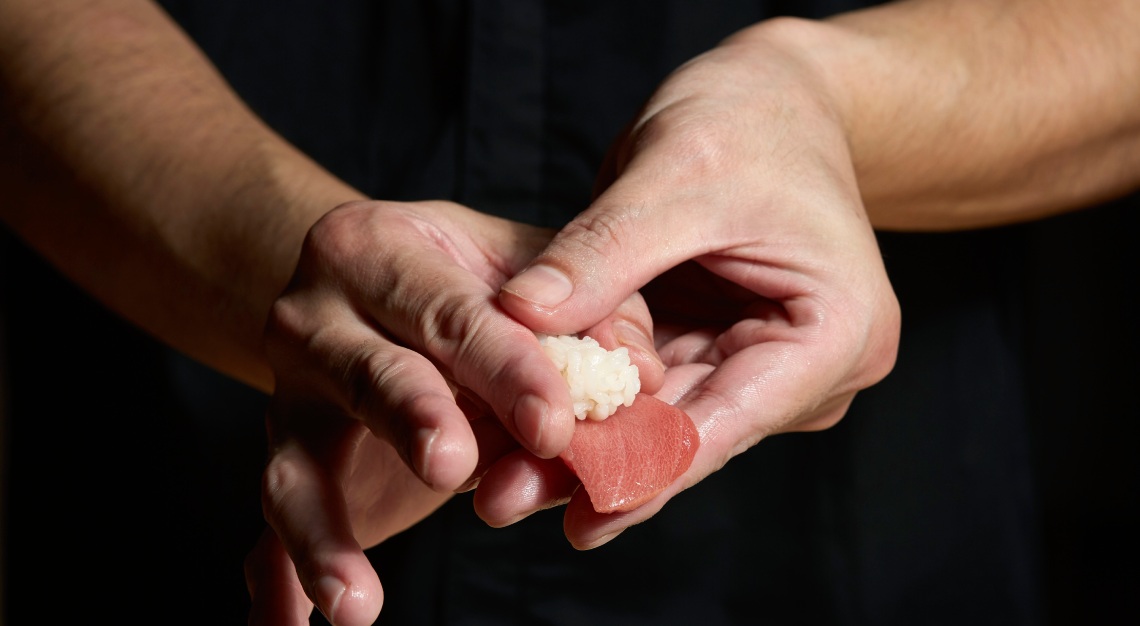It’s most notable in the Lake District’s villages where some of the country’s finest restaurants reside. Call it the L’Enclume effect
In late spring, I’m driving through the Lake District of northern England, a region as soggy as Seattle, with as many as 200 days of rain a year. Cruising through a lush landscape of rolling hills dotted with cows and sheep, I pass tidal mudflats along the coast at Morecambe Bay and the placid waters of Lake Windermere, speckled with sailboats and surrounded by dense forest on all sides. In this fertile swath of Great Britain, I’m expecting a farm stand around every corner, thousands of acres blooming with good things to eat.
British chef Simon Rogan was expecting a similar bounty in 2002, when he and his wife, Penny, sold their earthly possessions and moved to the small village of Cartmel, some 129 kilometres south of the Roman Empire border with Scotland at Hadrian’s Wall. Here he bet everything on the launch of a new destination for modern seasonal cooking in a former 13th-century blacksmith’s workshop along the River Eea. He called it L’Enclume, “anvil” in French (the antique anvils installed in the dining room came with the place), channeling the country restaurants in France that inspired him originally, with the chef in the kitchen, his spouse running the dining room and welcoming guests. “We were a real team back in those days,” says Rogan of his wife, who has stepped back from day-to-day operations.
Rogan, a native of Britain’s southern coast, began his cooking career as a teenager working in a casual Greek restaurant in the port of Southampton. After stints in Paris and London, he’d hoped to find a rich trove of local ingredients to work with when he moved north to helm his first spot as proprietor. His restaurant, near the medieval priory in Cartmel, opened just across from the bakery that claimed to have invented sticky toffee pudding. “I knew the foraging part was going to be very strong around here,” he says. “Little did I know the produce was going to be absolutely diabolical.”
With much of the arable land devoted to livestock, the best fruits and vegetables turned out to all be imported from elsewhere. So, Rogan got to work on growing food for himself. “The first thing we planted were radishes, the easiest thing in the world to grow, because the radishes here were crap,” he says.
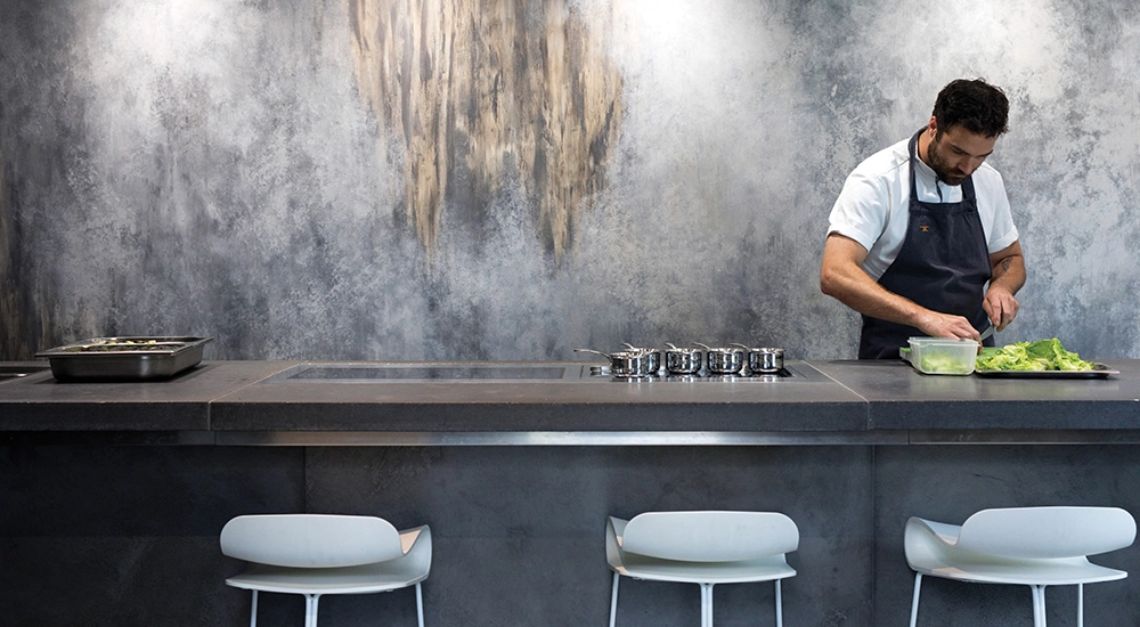
In the two decades since L’Enclume unveiled its first tasting menus mixing his own locally grown ingredients with the sort of cutting-edge kitchen tools and techniques that were revolutionising fine dining, Rogan has shown Britain the epicurean potential of this verdant corner of England’s far north. (Heston Blumenthal’s Fat Duck accomplished a similar feat not far from London when it debuted in the village of Bray a few years earlier.) After his initial foray, Rogan opened two additional restaurants in Cartmel: the more casual, Michelin-star Rogan & Co. and the experimental six-seat chef’s counter Aulis, where dishes in the final stages of development for L’Enclume are first tested on guests. Early this year his complex, layered flavours and pristine raw materials helped L’Enclume earn a third Michelin star, the first restaurant in the area to reach that pinnacle.
Though the new Michelin guide was gushing (calling out “stunning new dishes… slotted seamlessly into the set menu”), more skeptical British critics haven’t always been kind to Rogan’s precious, tweezered cooking. “Rogan’s food is always a deeply subjective experience,” Grace Dent wrote in The Guardian in 2018. “It excites and then, minutes later, repulses. Perhaps that’s the point.”
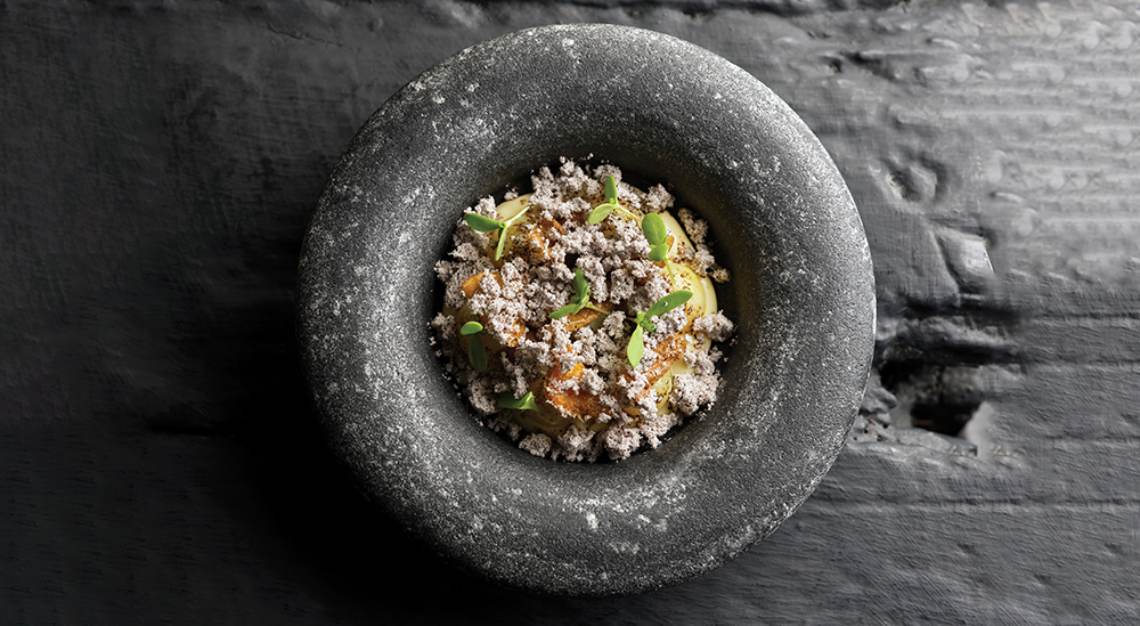
Nonetheless, L’Enclume’s third star made headlines across the country and brought a new rush of gastrotourists not only to Cartmel but also to the surrounding area. Thanks to Rogan, the Lake District, long a haven for anglers, country walkers and rock climbers, known for its Beatrix Potter attractions (The Tale of Peter Rabbit is a local story) and family-friendly outdoor activities, has become a full-fledged food-pilgrimage site, too. And its newfound reputation as a culinary mecca now extends beyond its founding prophet. In recent years Rogan’s acclaim has inspired a small legion of young chefs to follow in his footsteps, transforming old pubs and other historic buildings into their own auteur outposts, such places as the Old Stamp House, in a 19th-century building in Ambleside that poet William Wordsworth once used as an office, where the tasting menu is written as a journey through the local landscape.
Ryan Blackburn, who opened the restaurant in 2014, worked at L’Enclume shortly before Rogan earned his second Michelin star in 2013. (Blackburn was already a head chef at another establishment but wanted to learn at the feet of the master.) “It was a wild, wild kitchen—with syringes, a kind of self-built water bath, all this mad stuff. But you could see straightaway it was special,” he recalls. Now Blackburn is building his own little empire in Ambleside—at the head of Lake Windermere—with a new tapas bar under construction next door to his fine-dining flagship, and a more casual restaurant, Kysty, open just up the street.
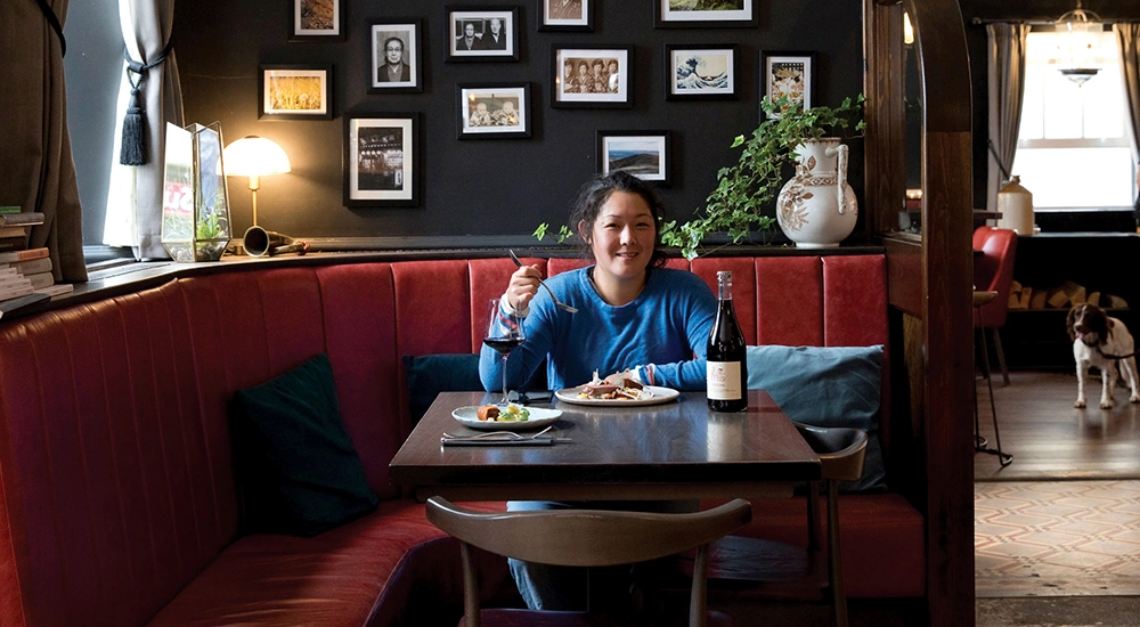
A similar expansion plan is underway in the village of Sedbergh on the eastern edge of the Lake District, where, in 2018, James Ratcliffe and Nina Matsunaga transformed a derelict coaching house, or inn, into an ambitious restaurant, the Black Bull, with hotel rooms upstairs. The menu, under Matsunaga, a transplant from Germany of Japanese heritage, features an eclectic mix of British and Asian cooking (tofu with local lamb, wild rabbit with bacon jam). Ratcliffe, a self-taught sommelier, curates the collection of mostly natural wines. The couple hope to add a second restaurant to their village holdings soon—a small-plates spot with “more personal cooking,” says Matsunaga—and, eventually, a bakery and smokehouse. “We’re always looking for the next thing,” says Ratcliffe.
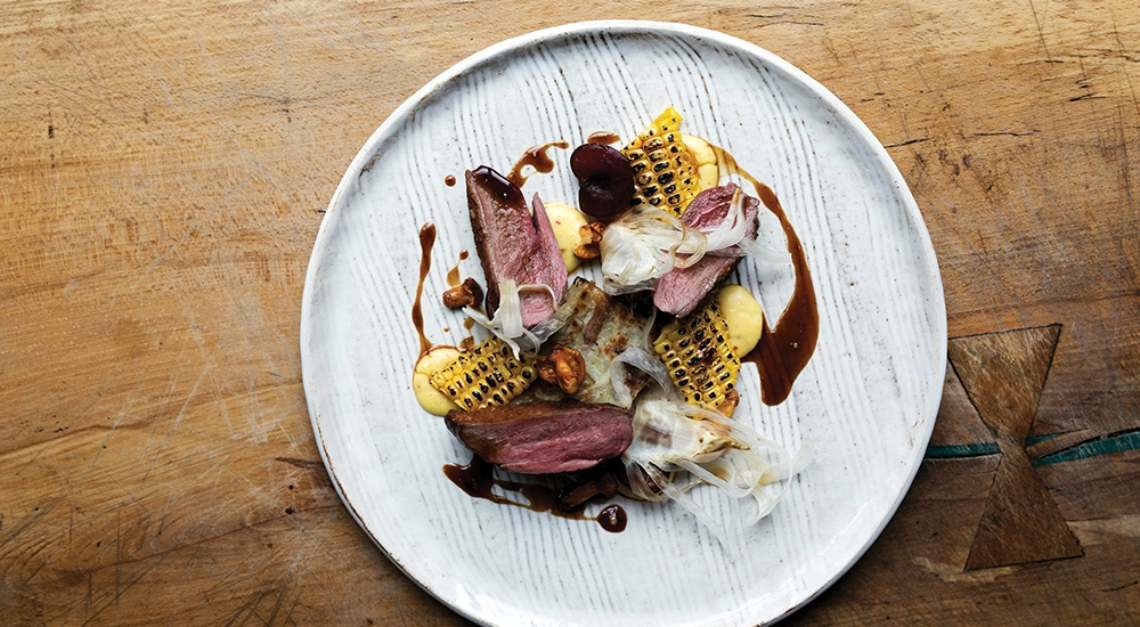
Meanwhile, in Cartmel, Rogan is now cultivating much of what the Lake District failed to deliver. His 12-acre farm supplies his four restaurants in the area and another in London with all their fruit, vegetables and herbs. “It’s been quite a slow start to the season, not quite freezing but not warm enough—it’s not really kicked off yet,” he says, wandering among the produce beds one afternoon in early June, playing down the abundance of strawberries, fresh peas, edible flowers, broad beans, shiso and baby leeks. “We get a plant, we are looking to use every damn bit of it: the root, the stem, the leaf, the flower, every part. It drives creativity.”
The farm has its own orchard with pear and apple trees. There are chickens laying eggs who may soon be joined by flop-eared pigs supplying bacon for breakfast.
That evening I follow the ingredients from the farm to the restaurant plate, settling in for dinner under the heavy wood beams of L’Enclume’s ancient dining room. A sommelier from the Loire Valley with a gravity-defying mustache offers a glass of British sparkling wine, the restaurant’s own special cuvée. An envelope with a waxed seal is propped on a pedestal at the end of my dimly lit table, the evening’s long menu inside. “It’s completely up to you if you open it or leave it to the element of surprise,” a waiter informs me.
Soon the first snacks begin to arrive—a pork and eel fritter for sopping up a delicious creamy lovage emulsion; a cube of cheesy, buttery croissant dough kissed with birch-sap syrup. Roe deer tartare, slicked in coal oil—a smoky infusion from the restaurant’s lab—is like eating a campfire, if you can imagine that in a good way. Dishes come in quick succession. Three hours, and 15 courses, zip by. The dining room feels like a clown car: New faces seem to appear from nowhere, an eclectic rotation of wait-staff, sommeliers, hosts and chefs, each presenting dishes.
Caviar cured in Maldon salt rests on a savoury custard studded with oysters and glazed with beef broth. Barely cooked turbot reclines on chopped razor clams glistening with pine oil. With the Lake District’s local stocks largely depleted—even the famed brown shrimp from Morecambe Bay are in short supply these days, after years of over-fishing—the seafood at L’Enclume is mostly sourced from elsewhere in England.
The region’s gray-wooled Herdwick lamb, though, is among the most prized in the country. A porcelain receptacle resembling a small bag of dirt arrives, cradling the first of three Herdwick lamb dishes—sweetbreads, sticky with ramson honey, under a layer of black-garlic soil. “You’ve got to dig right down, right down,” instructs a waitress, giddy after reciting the complex components.
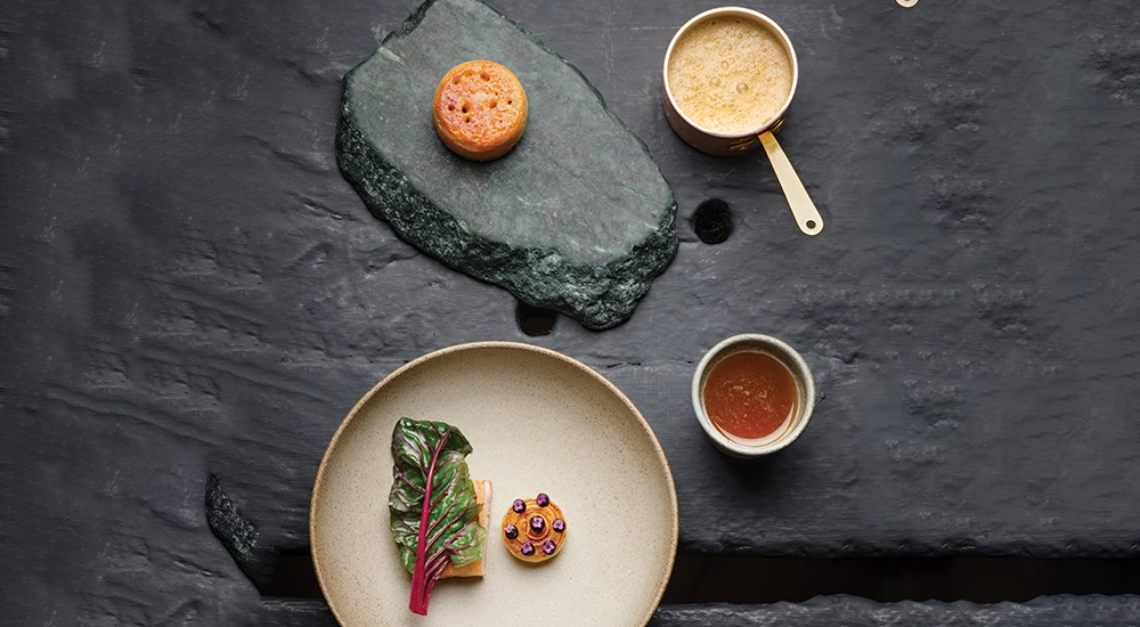
To celebrate L’Enclume’s 20 years in operation, Rogan has been rolling out new collaborations with local producers since the start of the year. A sheep’s milk cheese wrapped in foraged ramson leaves, made by Rogan’s team in partnership with local cheesemaker Martin Gott (of nearby St. James dairy), joined the cart just in time to close out my meal. A special-edition label from the Unsworth Brewery (also just up the street) is available these days. A L’Enclume whisky is in the works.
Two books to mark the 20th birthday are also coming, the first a “real arty sort of anniversary book without any recipes, following the journey of a cabbage,” as Rogan describes it, the second “a recipe book with lots of pictures,” capturing a year at L’Enclume. Closing out the celebration, the restaurant may expand by breaking through walls—to add not more tables but more room to spread out. Rogan also hopes to enlist a ceramist full-time to make new dishes for all of his Cartmel restaurants, which are situated within a short walk of each other.
Over the years Rogan has become an increasingly pervasive presence in the village (with a year-round population of about 4,000), snapping up real estate and adding office space, a small retail shop and guest rooms. Today there are 16 rooms for rent in a number of adjacent buildings, all within stumbling distance of L’Enclume, and all consistently booked (I wasn’t lucky enough to snag one).
Until recently, Rogan won over locals with a relatively affordable lunch deal at L’Enclume. Before scoring its third star, the restaurant served an abbreviated midday menu priced at just 75 pounds (S$123). There was considerable outrage earlier this year when that perk was scrapped and the regular tasting menu shot up 22 per cent to 250 pounds (about S$410) a head. (“Knives out as Michelin star restaurant L’Enclume hikes its prices,” read The Times in May.) “It looked like it was because of the third star,” says Rogan of the price hike. “It wasn’t. Look at what’s going on in the world.” Still, the increase led to a rash of no-shows. “Cancellations were brutal. It’s stabilised now.”
Before the pandemic, Rogan’s attentions were more divided. He was a typically intense star chef on a constant hamster wheel of planes and trains, checking in on outposts in London and Hong Kong, on the verge of opening a restaurant in New York. When the world shut down, the New York deal fell through. His main London restaurant, Roganic, a sort of pared-back version of L’Enclume—his “shop window for driving people north,” as he describes it—eventually closed (he still runs an eight-seat Aulis there). Grounded in the Lake District, Rogan focused on the farm, which has added a third more land under cultivation over the past year, and launched a pandemic takeout operation, Home by Simon Rogan.
Then he turned his focus to elevating the food at L’Enclume even higher. “Just before lockdown we sort of got an inkling that we were very close to three stars,” he says. “We knew what little tweaks we had to make… They wanted more layering of flavour, that X factor, that different dimension.”
With his eyes on the prize, Rogan stationed himself at the restaurant when it reopened for service after restrictions lifted.
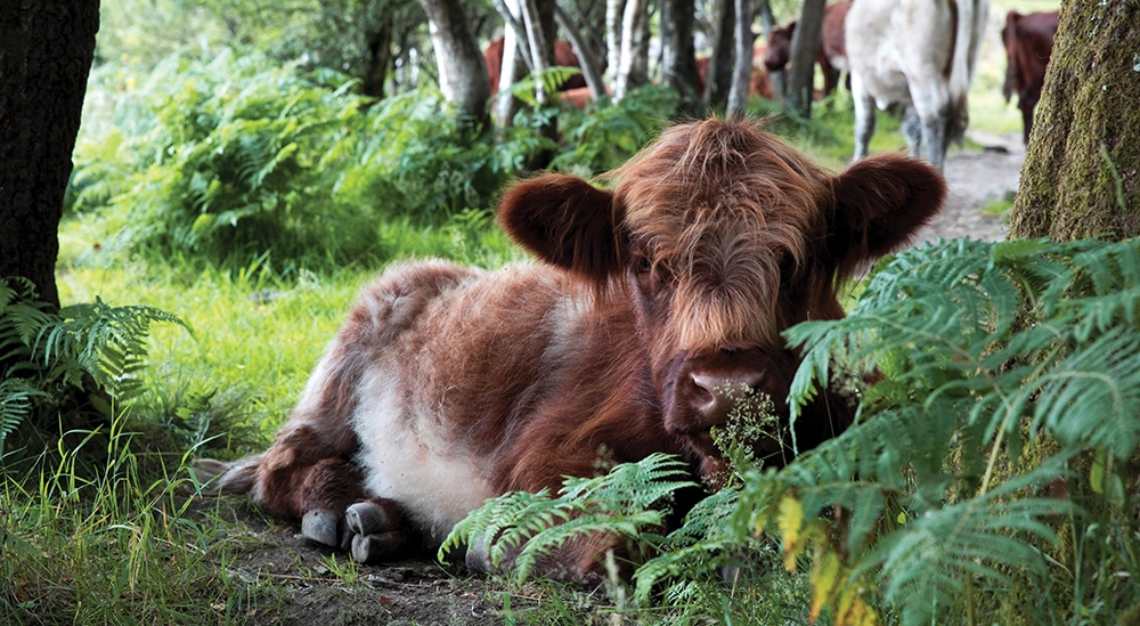
There was a time, before L’Enclume, when fine dining in the Lake District was the exclusive purview of its grand hotels, former aristocrat manors turned wedding venues/family resorts that dot the lake shores. Shortly before the pandemic, Rogan joined forces with one of the most magnificently situated of these country-house hotels—on a hilltop above Lake Windermere—taking over food and beverage operations at Linthwaite House as it emerged from a more than US$12 million (S$16.7 million) upgrade under new owner Analjit Singh, the tycoon behind South Africa’s Leeu Collection of luxury hotels.
Rogan’s new restaurant, Henrock (named for an island in Lake Windermere), is in the main house, built as a private home in the early 1900s and now filled with an eclectic mix of international art. The hotel’s Fell Suites, surrounded by wildflowers and tall grasses on a secluded clearing atop the manicured grounds, are the perfect place to zone out after an extravagant meal.
Rogan’s Linthwaite operation features the same attention to detail you’ll find at L’Enclume but with a more global dimension, and coffee Negronis served at the bar. Henrock’s dinner menu, meanwhile, mixes ingredients from the farm with accents from his and his team’s international travels. Meals begin with a signature amuse bouche, a playful nod to the restaurant’s name: a smoked egg yolk with seasonal vegetables in a ceramic eggshell on a stone pedestal. Mackerel in jalapeño cream is cured ceviche-style. Guinea hen finished with sumac comes with a Middle Eastern spiced-lentil puree.
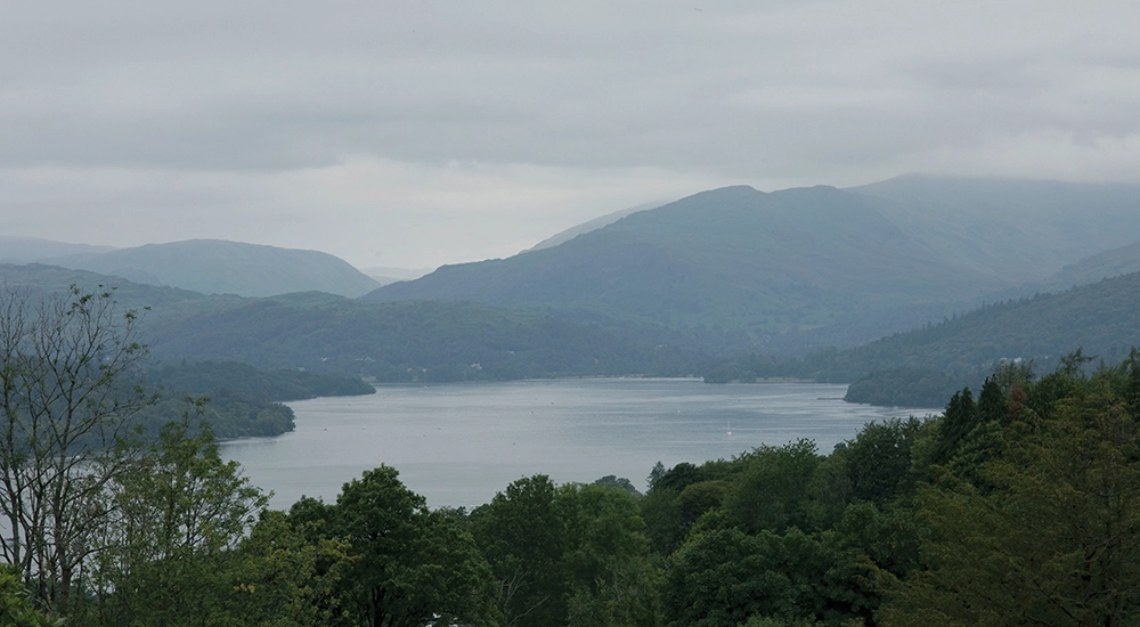
Henrock got off to a slow start, opening just before the whole country locked down. Now that it’s finding its footing, and L’Enclume is firing on all cylinders, Rogan plans to start travelling again. After two years he can’t wait to get back to Hong Kong, where he operates a Roganic and an Aulis. Long distance, he opened a third spot there recently, a combination bakery and wine bar. He’s considering expanding to Shanghai and says his London Roganic will reopen eventually. “Everyone keeps asking me when it’s coming back,” he says.
And though he’s still dreaming of expanding to New York, Rogan is very much rooted in the Lake District—and thrilled, he says, to see it becoming a hot food destination.
“I probably opened people’s eyes to the area,” he says, “and now that’s attracted loads more talent here who want a piece of the pie—scenery, ingredients, quality of life. I don’t think there’s any better place to work in the UK.”
This story was first published on Robb Report USA
